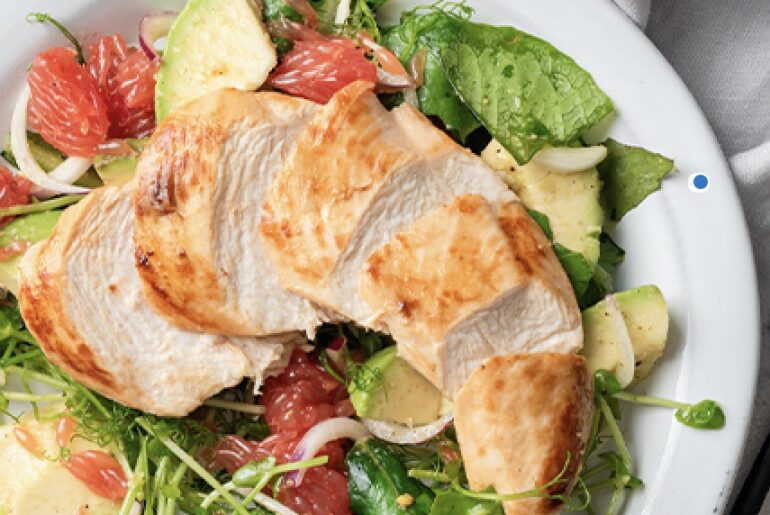With an estimated 20% of the workforce in the United States working at home beyond 2021, there will be 30 million meal occasions daily that used to be lunches consumed away from home. According to research presented on July 19 at the 2021 Chicken Marketing Summit at Fernandina Beach, Amelia Island, Florida, this presents an unprecedented opportunity for innovation for the poultry industry.
The Washington, DC-based National Chicken Council (NCC) and WATT Global Media presented the results of a study that focused on anticipated US consumer behavior post-pandemic to identify opportunities for chicken to gain market share in home food preparation and the upcoming foodservice revolution. IRI provided supporting data from its retail databases. The study was commissioned by the NCC and conducted online by IRI from June 23-30 among 759 adults. Funding was provided by Elanco Animal Health, Evonik Animal Nutrition, NCC and WATT Global Media. A full copy of the presentation is available by clicking here.

The Healthy Choice Post-pandemic
Post-pandemic, 91% of those surveyed plan to continue eating chicken at home; 30% said they will eat more chicken than pre-pandemic. Taste, value, nutrition, ease of preparation and freezing were the tops reasons cited for consumption during the pandemic. Nutrition was the top reason for post-pandemic consumption: 42% of those planning to eat more or the same amount of chicken post-pandemic said: “It’s healthier than other protein.”
Ninety-six percent of respondents said they consume chicken more than once a month, 60% said more than once a week. US consumers plan to buy more chicken than other types of protein in the next 6-12 months. Chicken purchasers cite taste, value, nutrition and grilling as motivations for increasing and maintaining their chicken purchasing.
“Chicken is a comfort food. That was important during the pandemic,” according to Tom Super, NCC’s senior vice president of communications. “Chicken is easy to prepare in new appliances like air fryers, and we saw record sales of wings during pandemic months.”

Long-lasting Impacts Create Opportunities
Chris DuBois of IRI and Joyce Neth of WATT Global Media presented data to support four trends that will continue to influence how US consumers cook and eat. They presented these “meaty ideas” for winning the 2021 reawakening of retail and food service and beyond.
“The pandemic brought out creativity many didn’t know they had,” said DuBois. “Thirty percent of shoppers tried new cuts of meat and seafood, driving virtually all industry growth, while 91% say they plan to continue to eat chicken at home in the months ahead, grilling more cuts and experimenting with different recipes.”
According to Neth, “cooking at home has become habit,” due to cost savings, health benefits and sustainability. These confident cooks are willing to try new things so market new ideas to them.
During the pandemic, premium products saw growth as consumers sought to make their lives better. With meat and poultry, consumers learned that they could prepare premium cuts for a fraction of restaurant prices. DuBois encouraged poultry marketers to seize this opportunity to meet the demand for premiumization by inspiring home cooks to create better experiences.
Innovate to Meet Evolving Needs and Emerging Occasions
Working at home will continue for 20-25% of the working population. This will create an estimated 33 million new meal occasions. More consumers anticipate doing more meal prep at home post-pandemic, many inspired by new appliances like air fryers and pressure cookers.
“This is an opportunity to innovate and provide products to elevate these occasions and make our lives better, whether the food is cooked at home or delivered,” said Neth. “The convenience of e-commerce ordering and delivery is here to stay, for grocery and food service. Shoppers no longer have to go to the store for food, the food can come to them. Consumers will seek more personalized online grocery ordering. Deliver shoppable recipes across platforms to make it easy to shop and prepare meals. Eating at home means takeout and delivery, too. 52% “definitely will do more takeout and 37% probably will.
Chicken is ‘Pandemic-proof’
In the United States, chicken has proven to be “pandemic-proof.” According to the USDA, per capita consumption of chicken increased from 96.5 pounds in 2019 to 97.6 pounds in 2020. Chicken consumption is nearly twice that of beef and pork. Chicken outpaced pork in 1984 and sur





